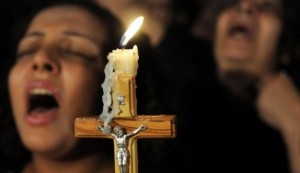In shining cities made of gold, shining men were kings,They made the art, the songs, the shows, and dimmer men believed, That all was gold and shined quite bright, in citadels so strong, None could believe or dream that all gold would go wrong.
As time went by the gold grew faint, and needed fresh refinement, But refiners fire was difficult and cost much, some decided, So bit by bit the drossy gold was painted o'er instead, So shining men kept up the work on which the dim ones fed.
More gold grew dross, more paint was splashed, more citadels stood gleaming, Eventually refiner's fire became the stuff of nightmare's dreaming, No one remembered how to smelt, to forge, or beautify, They traded goldcraft for the art of candy making for the eye.
But what the shining kings forgot — or just failed to remember, Is that painted gold won't last for long, and must eventually dismember altogether — 'twill fall apart, and will need fresh refinement, And then refiner's fire will burn and burn all that was painted by it.
But ignorance was bliss enough, and kings continued making, Eyecraft for the masses which the dimmer men kept taking, But now, infrequently there was a shining man found out, For taking paint upon himself, exposing all to doubt.
"Nothing to fear," the others said, "That man's not one of us," "We'll take good care to quell you fear," so dimmer men would trust, The words of other shining men, the kings of citadels, But slowly creeping came the thought they might be painted hells.
"Of course not," they would tell themselves, to quiet inner sounds, Of wisdom, discord, and the truth that dross was all around, Refusing, unwilling to see the fact that golden city was, So painted, now so unrefined, that towers turned to dust.
And not just towers, once so bright, were touched with dross's plague, But more men now, and women too, were painting for the stage, Was no one now of solid gold? Was no one true to from? The dimmer men were now quite bold, though many just as torn.
The shining city's edifice, and the shining people, too, Now grew with greater discontent, until someone quite new, Said, "It's okay, all is well, you're painted gold, so what?!" "Refinement hurts, it's just the facts, be who you are," and such.
So slowly shining cities came to trade their kings for those, Who waxing philosophical spun foolishness in prose, Now they made art, and songs, and shows that dimmer men believed, Because all were painted, all were dim — shining was now a dream.
They laughed and played, these painted ones, covering the gold, But underneath the dross grew dark, and citadels grew cold. The city cracked and shook one day, as shows and songs were sold, The shining city rocked and reeled, the world now seemed so old.
The citadels were broken down, the truth now on display, The shining city and the kings were dross-filled, painted, fake. "We need refinement," shouted some — the few who still believed, But now the dross and paint was such that no one else agreed.
The cities now were haunts of old, broken and beleaguered, The shining people — men and women — were filled with rage and anger, Consumed with hatred for the ones who painted themselves first, They never saw what's true of all: we paint for what we thirst.
As cities fell and citadels which once held shining kings, Came tumbling down upon the ground, an older man was seen. He sang a song, lamentable, with dirge-like poetry, And this is what was heard that day, among the anarchy,
"In shining cities made of gold, shining men were kings, They made the art, the songs, the shows, and dimmer men believed, That all was gold and shined quite bright, in citadels so strong, None could believe or ever dream that all gold could go wrong."



